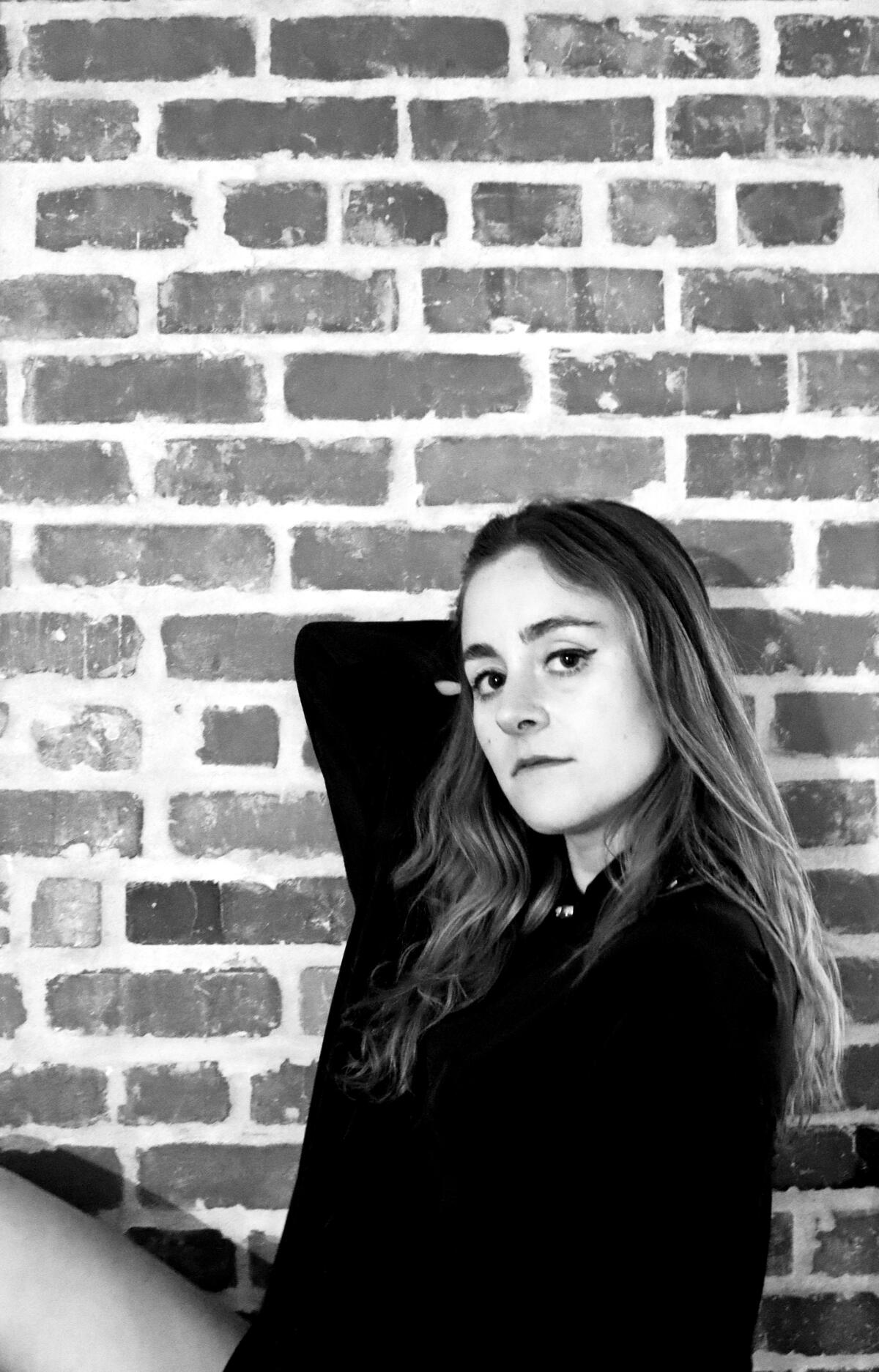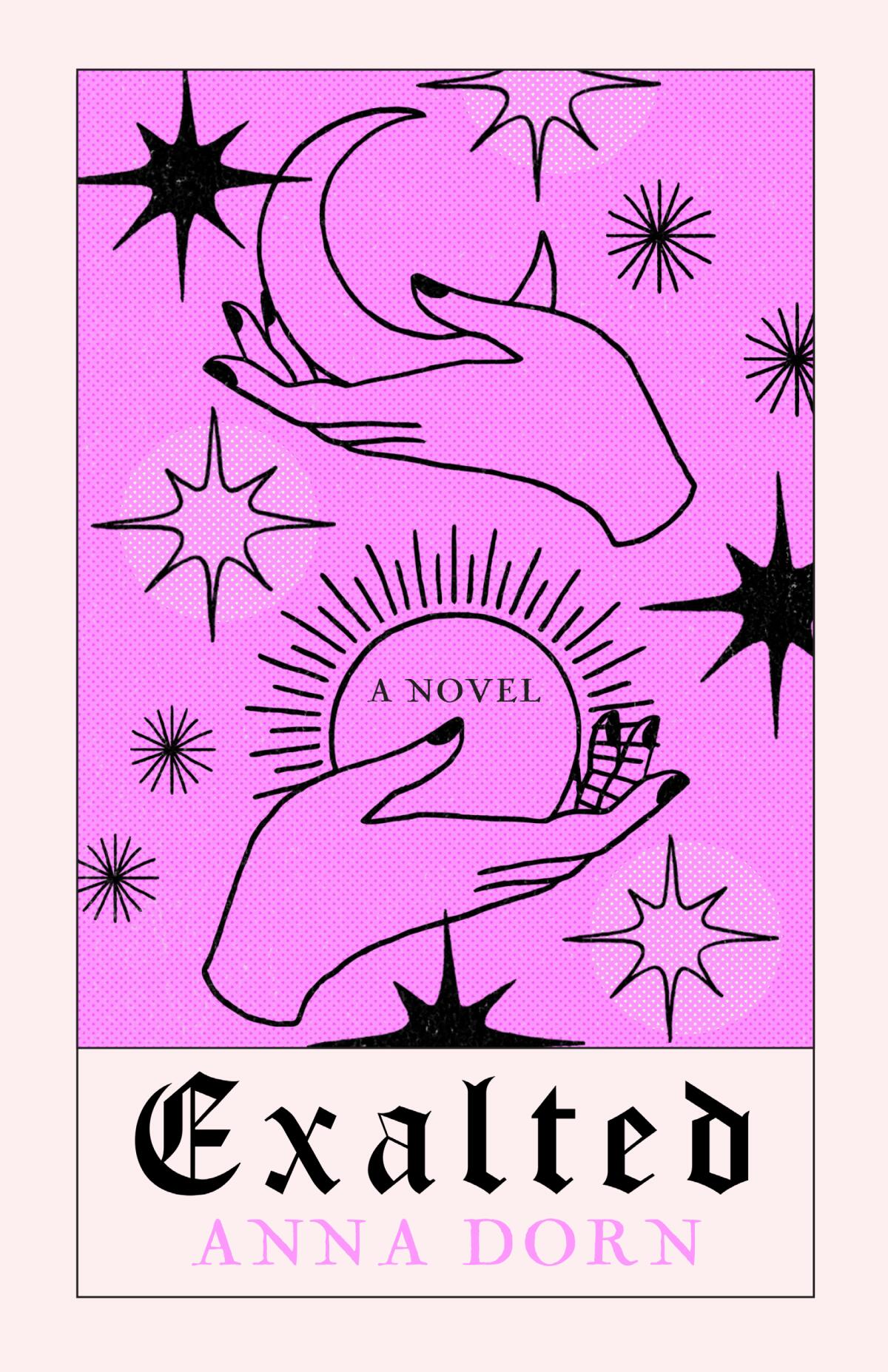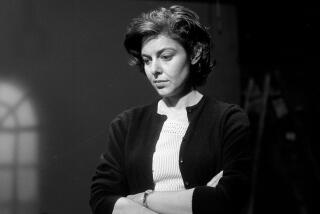Scorpio meets Leo, chaos ensues: An L.A. romp of astrology addicts behaving badly

- Share via
On the Shelf
'Exalted'
By Anna Dorn
Unnamed Press: $27
If you buy books linked on our site, The Times may earn a commission from Bookshop.org, whose fees support independent bookstores.
Astrology is in, especially among millennials and Gen Z, although plenty of Gen Xers and boomers are into it as well. Digital media is rife with horoscopes, quizzes and stylized daily schedules; social media is #blessed with astrology memes. There’s Zendaya drinking through a straw, where the cup stands for a common trait (“Cancer: grateful one minute, complaining the next.”)
Astrology has, in other words, become a shorthand for my generation, permeating online spaces to the point where even if you know nothing about it (me), you still know something about it (I’m a Cancer — ergo a homebody, an emotional caretaker, very intense, sentimental and unable to let things go).
Anna Dorn, a novelist (“Vagablonde”), memoirist (“Bad Lawyer”) and Virgo, has tapped into the generational obsession in her new novel, “Exalted.” The book is narrated in alternating chapters by two women, Emily and Dawn.

Emily (Scorpio) is an L.A. resident in her early 30s who didn’t make it as an actor. Instead she runs a popular astrology Instagram account, Exalted, freelances as a writer of zodiac-themed listicles such as “The Signs as Halloween Costumes,” reads people’s birth charts for an exorbitant fee and hangs out in a burlesque club called the Mirror Box. Dawn (Leo) is in her late 40s, lives in Riverside and has just been dumped by her rich girlfriend, necessitating a return to work at the Blind Pig, “where I wait tables in between financially solvent lovers.” She’s also the single mom of a grown son who has become snooty, she believes, since he left home.
Taschen’s “The Library of Esoterica,” a series that begins with “Tarot” and “Astrology,” honors the history of mysticism and its democratization.
The book opens with Emily worrying that “the astrology craze is fading, a fact reflected in [her] bank account.” Moreover, she’s pretty sure she doesn’t believe in astrology anymore, although she finds it a useful and accurate way to navigate social situations. Things begin looking up when she does a reading for someone named Beau Rubidoux and finds herself enthralled:
“[His] birth chart is beautiful. Perfect interwoven lines, a tapestry, a spiderweb. … It’s elaborate yet perfectly balanced. An art piece. His birth chart belongs in the Met, or maybe MoMA. Definitely an art museum in New York. It’s too sophisticated for LACMA.”
As Emily begins to stalk Beau, beginning with Instagram, back in Riverside, Dawn courts attention in more direct ways. She flirts with a bartender only to discover the bartender wasn’t, in fact, paying for her drinks; she reacts by accusing her of homophobia. She also has a propensity for sending threatening texts to people, including her son, when she’s had too much to drink, which is frequently.
These distinct plotlines do begin to bend toward each other eventually, but at first the connection is tenuous: Dawn follows Exalted, pays for a reading and idly fantasizes about finding out who’s behind the account and maybe asking her out. Emily begins making money again when a famous model, Stella Shadid (presumably a fictionalized Bella Hadid), shares an Exalted post.
It’s telling that so many of Emily’s memes poke fun at the various signs’ worst (but most relatable) traits. On the one hand, the implication is that it’s OK to have flaws; on the other, it’s also a handy cop-out. Some people are all, “Sorry, I was rude ... such a Virgo moment!” to which Emily retorts, “No, Allison, you’re just a c—.”
Needless to say, there are more run-of-the-mill explanations for character flaws. “Exalted” is a deep character study of two women’s obsessions, compulsions and maladaptive coping mechanisms. Each is diagnosed with a mental illness that explains some of her behavior — Dawn with borderline personality disorder, Emily with OCD. Their disinterest in managing their symptoms is sure to resurrect the undying debate over “unlikable“ narrators, situating Dorn among a cohort of writers, such as Ottessa Moshfegh, Roxane Gay and Nicole Dennis-Benn, whose work often features flawed women and their unruly desires.
We tend to look to the stars in troubled times. “Astro Poets,” “You Were Born for This” and “Madame Clairevoyant’s Guide to the Stars” teach us how.
Yet there is, quite simply, a deep satisfaction in seeing Emily and Dawn behave badly, suffer consequences and behave badly again — anything to avoid fully facing themselves. Dawn uses Exalted’s reading of her chart to focus on positive aspects like her magnetism and sex appeal. Emily knows she’s obsessive and discontented but compensates by making up extravagant lies to impress people, including her parents. Both women also seek out like-minded people who affirm their choices. Beau looks a little like Emily, with his deep black hair and armor of icy cool; Dawn’s best friend, Steph, also a lesbian Leo and a party girl, forgives her infractions over and over again.
Despite a fair number of truly terrible decisions, it’s hard not to root for them, in part because they’re both so audacious but also because Dorn allows us glimpses into their vulnerability: Emily is confused by why people find her funny, even though she doesn’t mean to be; Dawn is aware that she’s never set a good example for her son.
Can Emily and Dawn change? Maybe, if they wanted to. Or maybe they each contain multitudes, capable of good behavior as well as bad, and they only need what we all need: acceptance, love and some luck. The correct alignment of the stars.
Ultimately, “Exalted” lives in the same duality that defines Emily’s approach to astrology: It is “among the oldest belief systems in the world, a cosmic toolkit to realize our best selves, and also … a trendy new age crutch, a way to justify bad behavior.” Emily and Dawn may be liars, irresponsible and harmful, but they’re also charismatic and fun, and they inspire empathy and love from the people they mesh with.
“Exalted” is also incredibly funny, keenly tuned in to contemporary internet culture and generational differences. My only real complaint about Dorn’s second novel is how little interest she takes in people with my sign. But then I’m a Cancer, which means I have a bit of a victim complex.
I love myself. I am beautiful. It was an unseasonably chilly night for June in Los Angeles.
Masad is a books and culture critic and the author of “All My Mother’s Lovers.”
More to Read
Sign up for our Book Club newsletter
Get the latest news, events and more from the Los Angeles Times Book Club, and help us get L.A. reading and talking.
You may occasionally receive promotional content from the Los Angeles Times.










